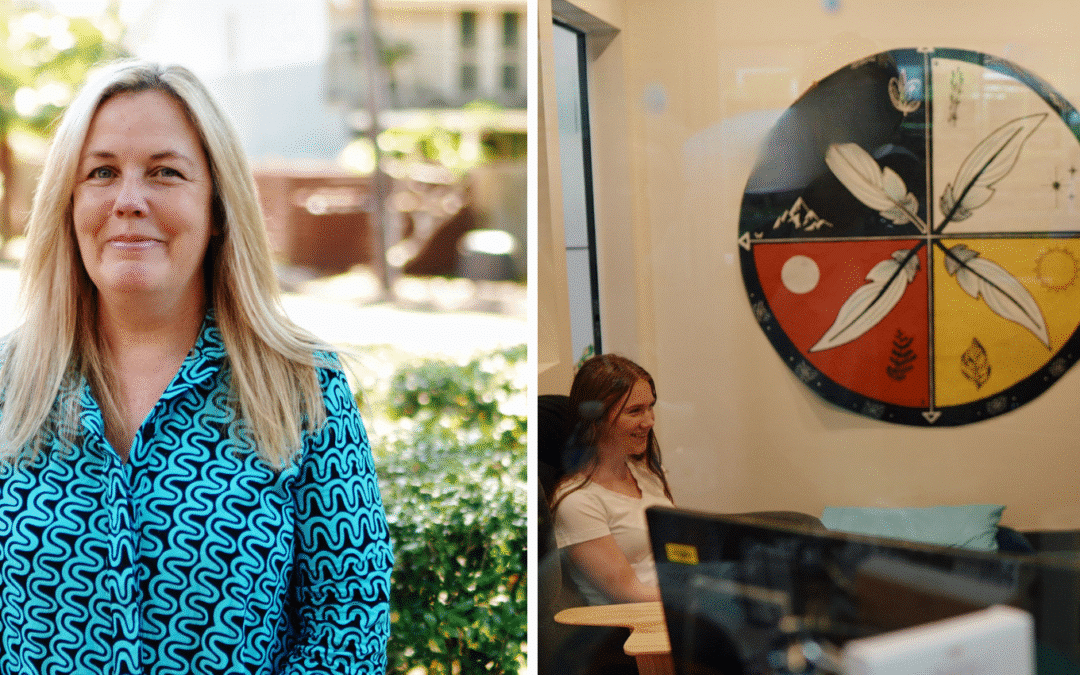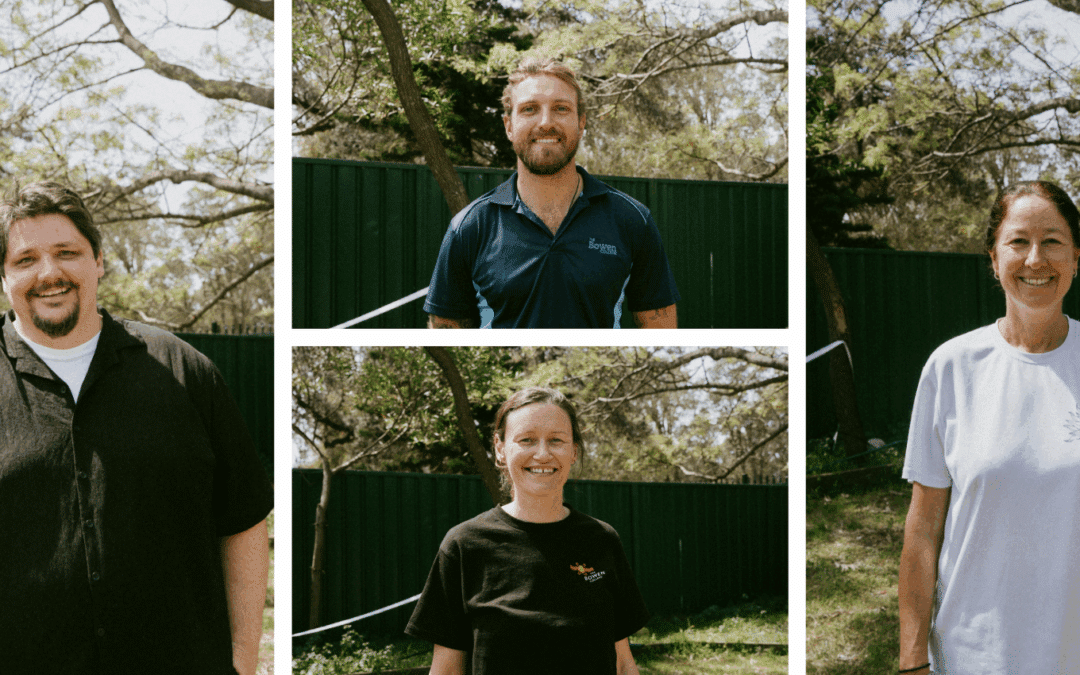Youth Off The Streets’ has seven independent and accredited high schools that provide education to young people experiencing disadvantage who have become disengaged from mainstream education.
These young people may have left mainstream schooling for a number of reasons, including falling behind with schoolwork, bullying, low attendance, poor mental health, drug and alcohol abuse or anti-social behaviour.
No matter what has led these young people to depart their old schools, Youth Off The Streets believes every young person deserves the opportunity to succeed in their education, and ultimately their future.
Education is, after all, key to breaking the cycle of disadvantage.
Tim Garland is a youth worker at Youth Off The Streets’ Bowen College in Maroubra. It’s a grand-sounding name for what is actually a small and inconspicuous school made up of a single classroom, two teachers, one youth worker and up to 12 students studying at various stages through years 9 and 10.
Inside the classroom, bright artwork made by the Bowen College students hangs on the walls and a collage of photos from past activities and excursions takes pride of place near the whiteboard.
“Positive relationships help us to create and model the inclusive and supportive community we want Bowen College to be,” says Tim, “Student’s then respect and understand the expectations we have for them.”
Why did you decide to become a youth worker?
I had some positive role models in my life that helped and guided me so I wanted to give back to others. I also knew people working in this field which inspired me to get into it.
What inspired you to start working at Youth Off The Streets?
Youth Off The Streets and Father Chris Riley have a great reputation in the industry for the work they do with young people.
I was very interested in the work they do with regards to education and wanted to be a part of supporting young people in such an important part of their daily life.
Can you describe what an average day is like at Bowen College?
An average day for me starts by reaching out to students via calls or text to see if they are on their way to school. We run what is called ‘Circle of Courage’ each morning, which is an important part of our daily routine.
This is a tool to check in to see how everyone is feeling, while giving them the opportunity to communicate first thing if they are experiencing any issues.
It also helps the other students be mindful and considerate if someone does happen to be struggling. We also use this time to get to know each other better with everyone taking turns to answer questions.
We then go into class where I could be supporting students with their work, helping re-engage a student who might have left class due to frustration or being overwhelmed, joining in on our extra curriculum activities like yoga, art and service learning and building relationships through sport and games during breaks.
I also help to support our students holistically with needs outside of school with areas such as housing, employment, holiday programs and referrals to other services which means collaborating with other support services both internally through Youth Off The Streets and externally when necessary.
What is unique about how Youth Off The Streets approaches education compared to a mainstream school?
Youth Off The Streets’ approach to education is really unique compared to mainstream education. Our schools are there to engage young people who have missed a lot of their education so of course, our approach needs to be different.
Our schools are a lot smaller which allows staff to build great rapport with students to create a safe and trusting environment. We take a holistic approach, to working with young people, supporting them with issues they might be facing outside of school.
We work with each student and create an individual learning plan at the start of each term. We take a relationship-based approach using therapeutic and restorative practices to support the students in all areas of their life, which in the past might have prevented them from engaging in education.
What are some of the challenges you face as a youth worker?
Initially when new students start it can be a challenge to build rapport. We are intrinsically relationship-based, so it is important to develop trust so our young people feel safe at school and know they can ask for help or support when they need it.
Students have sometimes had negative experiences of the education system, so gaining their trust can take persistence and time.
What are some important things someone working in your field should always keep in mind?
I think it’s always important to stay empathetic especially when facing difficult or challenging behaviour. We need to consider what is happening in that young person’s life and look what is underneath or the cause of that behaviour.
Also an important thing to remember is taking time for self-care, doing things away from work that you enjoy and keep you healthy.
If we aren’t able to take care of ourselves then we are not going to be able to support our young people in the best way we can.
Is there anything else you would like to add?
Sometimes the young people we work with are misunderstood. They are stereotyped as not caring or want to do things to get into trouble.
The reality for a lot of students at Bowen College is that it is the only safe and consistent place in their life.
We often see when they are given the opportunities that we provide to them within a safe environment they are then able to make positive decisions for themselves.
This could be anything from choosing to come to school every day, taking opportunities for new life experiences, or moving into their next stage of education or work.



